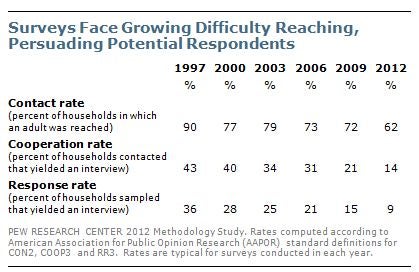- Ted Miguel is teaching a course on research transparency methods in the social sciences. Berkeley is posting the lectures on YouTube. Lecture 1 is now up.
- Chris Blattman on a paper looking at how the tendency to publish null results varies by scientific field.
- In Science, Jorge Guzman and Scott Stern on predicting entrepreneurial quality
- Ben Olken’s forthcoming JEP paper on pre-analysis plans in economics: this is a very nuanced and well-written piece, discussing both pros and cons – it notes a reaction I am increasingly persuaded by, which is that RCTs don’t really seem to have a lot of data-mining problems in the first place…and also that “most of these papers are too complicated to be fully pre-specified ex-ante”…main conclusion is benefits are highest from pre-specifying just a few key primary outcomes, and for specifying heterogeneity analysis and econometric specifications – less clear for specifying causal chain/mechanisms/secondary outcomes which can too easily get too complicated/conditional.
- At VoxEU, Daron Acemoglu and co-authors provide evidence from Egypt on how protest numbers affected the stocks of the group in power as Egypt transitioned between different regimes – “Under Mubarak, we find a significant effect of protests on the relative valuation of NDP-connected firms, but no effect on military and Islamic-connected firms; under military rule, protesters harm the valuation of military-connected firms, but not the valuation of their rivals. When Islamists are the target of the protests, bigger protests harm Islamic firms but have no effect on NDP- and military-connected firms.” Their conclusion: “large protests and street mobilisation appear to be effective means of changing the future distribution of power and act as a constraint on the ability of connected firms to siphon off returns to corruption and favouritism.”
- At Ideas for India, Karthik Muralidharan has a wide-ranging interview with Kaushik Basu covering a range of topics including the missing research gap on long-term macro, the role of RCTs, child labor and rights, why economists haven’t been more effective in influencing the design of policy interventions, and much more…A highlights version is also available.
- Can you get reliable results with a 9% response rate? Interesting work from the Pew Research Center on how rapidly response rates have fallen in the US over time (see figure) – but they argue that for many things you still get reliable answers provided you reweight the data appropriately. The big problem seems to be questions about volunteering and community participation – survey respondents are much more likely to do this than the general population, even after reweighting.

- Call for Papers: the World Bank ABCDE conference will be held in Mexico City – theme is productivity, growth and the law – as for this year, there will be a special papers and proceedings issue of the WBER based on this conference.


Join the Conversation